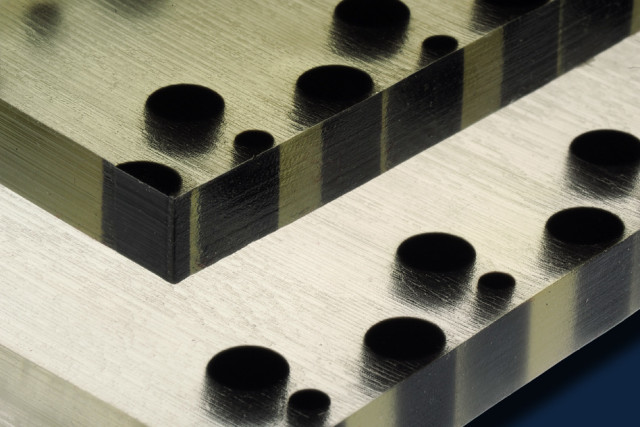An MIT team has been working on a way to make soft materials using a 3D printer.
The interesting part of their method is that after the material is printed, the surface textures can be modified on demand to be perfectly smooth, ridged, or bumpy, or even to have complex patterns that could potentially guide fluids.
Polymer material produced by a 3D printer includes soft, flexible material (clear or lighter tone) with particles of embedded hard material (black) in predetermined arrangements. When the material is compressed, its surface becomes bumpy in a pattern determined by the hard particles.
Polymer material produced by a 3D printer includes soft, flexible material (clear or lighter tone) with particles of embedded hard material (black) in predetermined arrangements. When the material is compressed, its surface becomes bumpy in a pattern determined by the hard particles.
The key here of course is the material. It is made up of two different polymers with different degrees of stiffness. Rigid particles are embedded within a matrix of a more flexible polymer. When squeezing pressure is applied, the material’s surface changes from smooth to a pre-determined pattern based on the spacing and shapes of the implanted harder particles. When the pressure is removed, the material reverts back to its original form.
Researchers say this new method could lead to a new class of materials with dynamically controllable and reversible surface properties, as reported in a paper published in Advanced Functional Materials, co-authored by MIT graduate student Mark Guttag and Mary Boyce, a former MIT professor of mechanical engineering and now dean of engineering at Columbia University.
Read more at ENGINEERING.com


